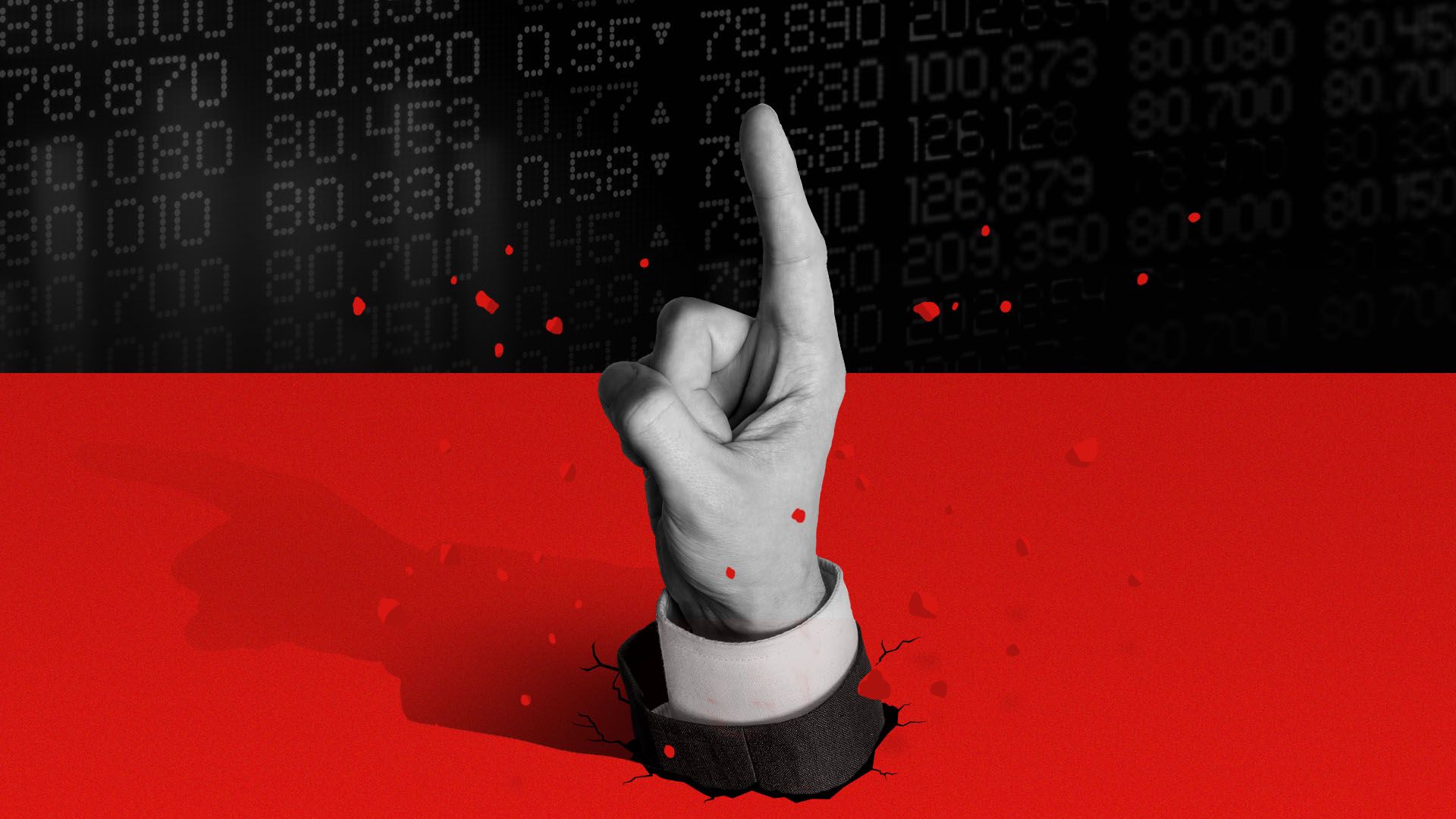The return of synthetic CDOs
Add Axios as your preferred source to
see more of our stories on Google.

Illustration: Sarah Grillo/Axios
Left for dead in the aftermath of the global financial crisis, collateralized debt obligations (CDOs), one of the most notorious agents in the collapse of the financial system, are starting to gain favor again on Wall Street.
The big picture: Synthetic CDOs, seen as particularly risky, both for a bank's balance sheet and its reputation, also have seen a wave of fresh investment this year as investors look for ways to bet on corporate defaults and generate yield.
Details: Christopher Whittall of International Financing Review reports, "Trading volumes in synthetic collateralized debt obligations linked to credit indexes are up 40% this year, according to JP Morgan, after topping US$200bn in 2018 on the back of three years of double-digit growth. Meanwhile, analysts predict more than US$100bn in sales of bespoke synthetic CDOs in 2019 following an estimated US$80bn of issuance last year."
What's happening: Since 2009, after the Fed began its quantitative easing program, investors have piled out of bonds and into riskier assets in an effort to replicate returns of the past. Portfolio managers have tried buying stock options, investing in hedge funds, private equity and alternatives. CDOs look to be the latest pick.
- Whittal reports that Citigroup, which was already investing in CDOs, has hired more traders to focus on the synthetic market in recent months. Deutsche Bank and Barclays look to be increasing their presences as well.
- "We provide solutions for our clients as there is a need in the market from investors for the yield and exposure from synthetics that is not available in other markets," a Citigroup representative who was not authorized to speak publicly on the matter tells Axios.
Yes, but: Today's synthetic CDOs are largely free from exposure to subprime mortgages, which drove much of the carnage in the crisis. Most are credit-default swaps on European and U.S. companies, and amount to bets on whether corporate defaults will increase in the near future.
- The amount of CDOs being traded also is much smaller than it was during the crisis, and is even a few hundred million dollars below the total seen in 2011.
The bottom line: "We are still at such a low level that this is not a worry at this stage," Deutsche Bank chief economist Torsten Slok tells Axios, "but we are indeed monitoring it carefully given the role synthetic CDOs played during the crisis."
Go deeper: Debt is suddenly hot
